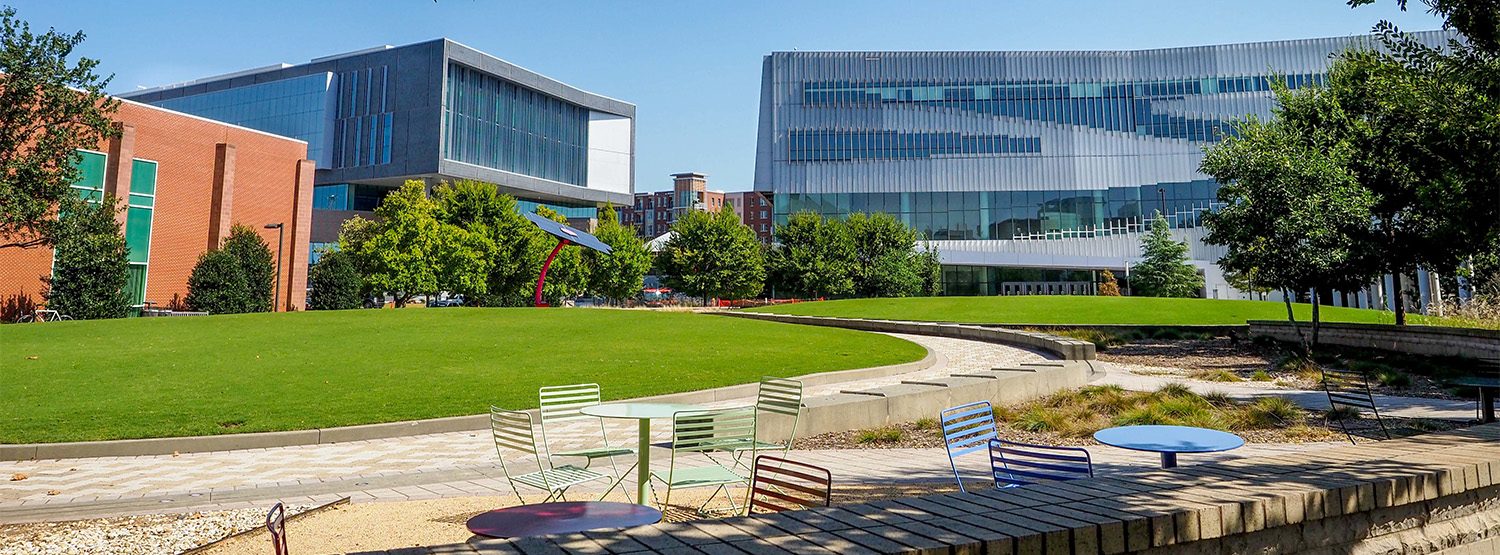Undergraduate Education

“Welcome to our family, where we think, do and design the materials that drive our future.”
– Dr. Donald Brenner, MSE Department Head and Kobe Steel Professor
What is Materials Science and Engineering?
Materials Science and Engineering (MSE) is at the core of nearly every modern technological advancement, driving the innovations that shape our world. From cutting-edge renewable energy solutions to groundbreaking developments in biomedical devices, MSE plays a pivotal role in the future of technology.
Why Study MSE at NC State?
Our Bachelor of Science in Materials Science and Engineering offers a comprehensive education that equips you with the knowledge and skills to develop sustainable, lightweight, and responsive materials, preparing you for impactful careers across various industries.
By studying MSE at NC State, you’ll learn to design materials that enable:
- Lighter, more fuel-efficient vehicles with advanced frames and tires.
- Durable electronics with ultra-thin, damage-resistant glass.
- Biomaterials that heal or replace parts of the human body.
- Soft robotics that revolutionize healthcare and manufacturing.
- Bionic technologies that enhance human capabilities.
- Advanced materials for water purification, ensuring access to clean water worldwide.
Explore the exciting world of MSE at NC State, where we combine hands-on learning, cutting-edge research, and interdisciplinary collaboration to prepare the next generation of innovators.

Program Overview
The Materials Science and Engineering (MSE) program at NC State focuses on the relationships between the structure, properties, and performance of materials. Our interdisciplinary approach integrates principles from engineering, math, chemistry, and physics, giving you a well-rounded education that meets the demands of the modern workforce.
Curriculum Highlights
You will build a strong foundation in fundamental courses such as thermodynamics, kinetics, and structure, followed by applied courses focusing on the mechanical, thermal, electrical, magnetic, and optical properties of materials.
- Option to specialize in Nanomaterials and Biomaterials
- Customize your education to align with future career goals or interests in advanced fields.
- Hands-on courses in analytical methods and material characterization.
- Work with advanced tools for real-world applications.
- Explore fields like nanotechnology, biomaterials, computer modeling, and forensics.
- Stay on the forefront of material innovation.
- Choose five technical electives from disciplines like materials processing, engineering, chemistry, physics, and mathematics.
- Flexibility to design your academic path towards a career or graduate studies.
- Participate in a two-semester capstone project, working on real-world material challenges.
- Collaborate with industry sponsors, bridging theory and practical applications.
- Accelerated Bachelor's/Master's Program: Earn a master’s degree in just one additional year.
- Take up to four graduate courses during your undergraduate studies, which count towards both degrees.
Accreditation
The Materials Science and Engineering program is accredited by the Engineering Accreditation Commission of ABET, https://www.abet.org.
With the background knowledge in science, engineering, critical thinking and teamwork provided by the MSE curriculum, our alumni are expected to achieve one or more of the following within five years of graduation:
- Practice materials engineering in appropriate academic, industrial, government or entrepreneurial organizations.
- Earn an advanced degree, such as M.S., Ph.D. or M.B.A., leading to a career in academia, research and development or technical management.
- Be promoted into leadership roles in their chosen career.
- Demonstrate by their participation in technical societies, community service and professional activities a high degree of service and ethical responsibility to their professional field and the community.
Students will develop:
- an ability to identify, formulate, and solve complex engineering problems by applying principles of engineering, science, and mathematics
- an ability to apply engineering design to produce solutions that meet specified needs with consideration of public health, safety, and welfare, as well as global, cultural, social, environmental, and economic factors
- an ability to communicate effectively with a range of audiences
- an ability to recognize ethical and professional responsibilities in engineering situations and make informed judgments, which must consider the impact of engineering solutions in global, economic, environmental, and societal contexts
- an ability to function effectively on a team whose members together provide leadership, create a collaborative and inclusive environment, establish goals, plan tasks, and meet objectives
- an ability to develop and conduct appropriate experimentation, analyze and interpret data, and use engineering judgment to draw conclusions
- an ability to acquire and apply new knowledge as needed, using appropriate learning strategies.
Student Support and Resources
At NC State, we are committed to supporting your academic journey. Resources available to MSE students include:
- A dedicated professional academic advisor
- Tutoring and study groups
- Access to cutting-edge laboratories and facilities
- Faculty and graduate student mentors in research lab groups
- Opportunities to join student organizations and professional societies
- Access to dozens of short-term and semester study abroad programs
Research Opportunities

As an MSE undergraduate student, you'll have access to a wide range of research opportunities that enhance your learning and prepare you for your future career.
Work with faculty on cutting-edge projects in areas like:
- Computational Materials Science
- Energy Materials
- Electronic, Optical, and Magnetic Materials
- Materials Characterization
- Soft Materials and Biomaterials
- Structural Materials
Over 65% of MSE students choose to participate in undergraduate research for at least one semester. Every professor is engaged in active projects, with research teams including undergraduates, grad students, and postdocs. Many positions even offer stipends, so you can gain experience while getting paid!
View Faculty Research AreasAccelerated Bachelor's/Master's Program
The 5-year Accelerated Bachelor's/Master's (ABM) Program offers NC State's top-performing undergraduate students the opportunity to earn a master’s degree in just one additional year. The major benefit is that up to four graduate courses (12 credit hours) taken during the undergraduate program can count towards both the bachelor's and master's degrees.
Learn More
Your Future in MSE Starts Here
At NC State, you’ll be part of a program that not only prepares you for a successful career but also empowers you to lead in shaping the future of technology and sustainability.
See your future in MSEPursuing Another Major but Interested in MSE? Consider the MSE Minor!
The Materials Science and Engineering (MSE) Minor is designed for students from any engineering discipline, as well as those studying chemistry, physics, or textiles. It’s an excellent way to build a solid foundation in materials science and engineering, particularly if you’re planning to pursue graduate studies in MSE.
Whether you’re curious about MSE or want to broaden your knowledge while pursuing another major, the MSE minor offers a flexible and rewarding option to explore the field.
Learn More